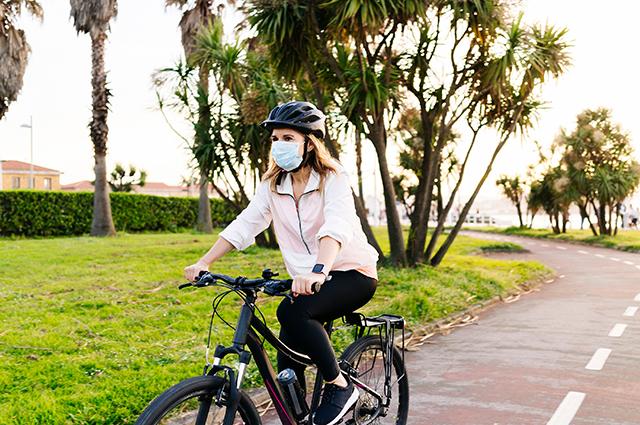-
About
- Departments & Offices
-
Academics
- Physician Assistant
- Special Master’s (MBS)
-
Admissions & Financial Aid
- Tuition & Fees
-
Student Life
-
- Student Resources by Program
- Academic & Student Support
- Wellness & Wellbeing
- Student Experience
- Events & Traditions
-
-
Research
- Research Labs & Centers
-
Local & Global Engagement
- Global Health Programs
- Community Engagement
Are face masks helping people with allergies?
John Leung, MD, an assistant professor at Tufts University School of Medicine and an allergist and gastroenterologist at Tufts Medical Center, fills us in

The masks people have been wearing to help prevent the spread of COVID-19 are also good at filtering out pollen and other allergens floating in the air. For people with allergic rhinitis or allergic asthma, who develop symptoms after breathing in allergens, masks can be really helpful.
Even before COVID-19 caused everyone to start wearing masks, some patients with seasonal allergies used masks on days with extremely high pollen counts or when doing yardwork. Pollen grains can be as small as about 10 micrometers, but surgical masks can catch particles as small as 3 micrometers. Other medical masks can be even more effective. Even the cloth masks most people are wearing in outdoor settings can make a difference, especially those with multiple layers of fabric.
An allergy is essentially the immune system overreacting to something that is not a threat. When pollen comes into contact with the mucus membrane inside the nose, for example, the immune response creates inflammation, which in turn causes congestion, sneezing, and excess mucus. If you can prevent an allergen like pollen from getting inside your nose, you won’t have that response.
Of course, face masks don’t protect your eyes. If you have allergic conjunctivitis—eye allergies—you probably are going to benefit less from wearing a mask over your nose and mouth.
With so many people wearing masks outdoors this year, we’ve seen patients reporting fewer seasonal allergy issues. However, we saw an increase in indoor allergies as people added dogs or cats to their household and spent more time at home. Our houses are the one place most people aren’t wearing a mask, and more patients are seeking treatment for allergies to animals, dust, and mold.
Even for seasonal allergies, masks aren’t a great long-term solution. Many people dealing with allergies also have skin conditions like eczema or acne that can be made worse by wearing a mask for a prolonged time. The most effective way to treat an allergy is with allergy shots, or immunotherapy. Over several years of treatment, this can actually cure an allergy instead of just treating the symptoms.